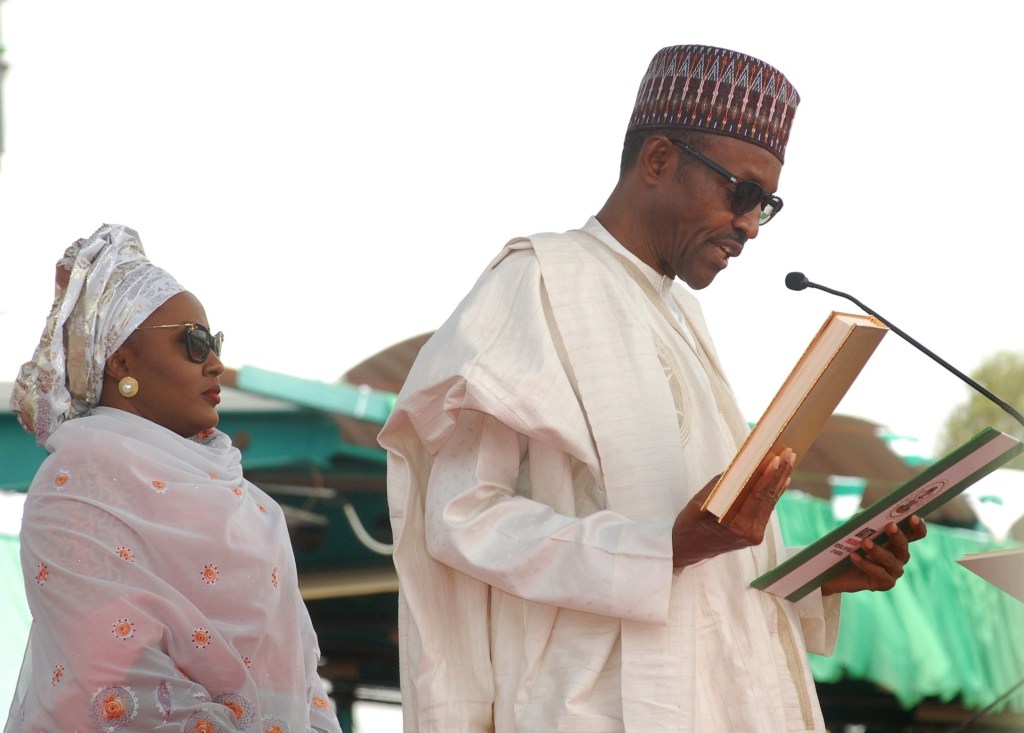Nigeria’s two main political parties have selected their candidates for next year’s presidential election, leaving the country’s population of 200 million people with a likely choice between a candidate who was once banned from the US for his alleged links to multiple corruption scandals and a nominee that has been repeatedly accused of using his official state funds to buy political power.
Representing the country’s opposition party, the People’s Democratic Party (PDP), will be Atiku Abubakar, 75, a former two-term vice president who is running to become the president of Africa’s most populous nation for the fifth time. During his failed run in 2019 to unseat the current two-term president, Muhammadu Buhari, Atiku made a show of travelling to the US to prove that he was no longer barred from entering the country after he was hit with a decade-long visa ban following a US Senate report in 2010 that accused him and his family of funnelling “$40 million in suspect funds into the United States through wire transfers sent by offshore corporations.”
Videos by VICE
Sources in the US State Department told Reuters in 2019 that Atiku was only allowed into the country because his visa ban had been temporarily suspended due to his position as a leading candidate for Nigeria’s presidency. Atiku has been linked to a number of corruption scandals in Nigeria, including by former President Olusegun Obasanjo – who he served as vice president for eight years. While still in office, Obasanjo set up a corruption panel to investigate his own sitting vice president. The panel’s report revealed a number of alleged connections to corrupt schemes. Atiku denies all allegations of wrongdoing.
The other mainstream choice facing voters is the nominee for the ruling party, the All Progressives Congress (APC), Bola Tinubu – a controversial former governor who is often referred to by his critics and allies as the “godfather of Lagos” for his outsized influence on politics in the country’s most populous state and across Nigeria. The 70-year-old has made little attempts to push back against this framing. In the closing days of his primary campaign, he gave a desperate speech claiming that senior officials in APC, including President Buhari, owed him the presidency for his role in putting them in office. At one point, after taking credit for getting Buhari into office after the president “cried about losing” an earlier bid for president, Tinubu embarrassed a sitting governor in the room by pointing to him and saying disparagingly: “Can this one claim he would have been governor if it wasn’t for me?”
Tinubu has been repeatedly accused of building his power base by syphoning off Lagos state funds into his own private political war chest, which is why some of his assets were targeted by demonstrators during 2020’s #EndSARS protests against police brutality and political mismanagement of the country. During the protests, buildings housing Television Continental (TVC) and Max FM, two media companies owned by Buhari, were burned down. He is also believed to have temporarily fled the country at the height of the protests in fear of more retribution against him. Tinubu also denies all allegations of corruption.
Meanwhile, the choice between Atiku and Tinuba has left many young people on social media actively searching for a third candidate to rally behind. Early momentum appears to be building for a movement to coalesce around Peter Obi, the former governor of the eastern state of Anambra. Obi was initially a presidential candidate for PDP before he dropped out days before the primary in protest at what he perceived as a corrupt nomination process. He has since joined the recently formed Labour party.
As always, dozens of smaller parties will put forward their own presidential candidates, but it is yet to be seen whether Obi or another third-party candidate can actually break the powerful duopoly of Nigeria’s two main parties. Nigeria’s presidential election will be held in February next year, with voters electing a head of state for a four-year term.




